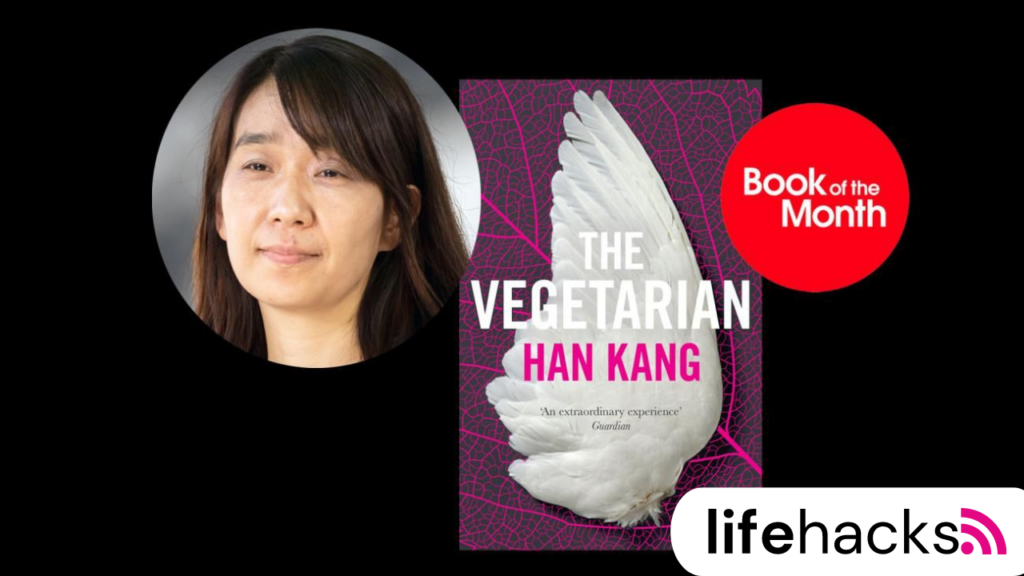The 2024 Nobel Prize in Literature will go to South Korean novelist Han Kang for her “intense poetic prose that confronts historical traumas and exposes the fragility of human life.” As the first South Korean to ever win this esteemed award, Han’s accomplishment represents a critical turning point in both Korean literature and her professional life. The 53-year-old author is most recognized for her writings on Greek Lessons, The Vegetarian, The White Book, and Human Acts. She has received praise from all around the world for her compelling examination of subjects like violence, loss, and the resiliency of the human spirit.
Table of Contents
ToggleA Literary Achievement for South Korea
Worldwide excitement greeted the announcement of Han Kang’s Nobel Prize, not only in South Korea. Korean bookshops saw an increase in business after the announcement, and authorities even temporarily stopped government proceedings to celebrate this enormous accomplishment. Yoon Suk Yeol, the president of South Korea, congratulated Han and praised him for turning the horrific scars of Korean history into potent literary works. In a statement, he stated, “I send my respects to you for elevating the value of Korean literature.”
Han Kang, in an interview with the Swedish Academy, expressed her surprise and gratitude for the honor. She noted how deeply connected she feels to Korean literature and hopes that this recognition will bring more attention to the nation’s literary talents.

Han Kang’s Literary Journey
In 1970, Han Kang was born in Gwangju, South Korea. The violent 1980 Gwangju Uprising left a lasting scar on her early existence in the city, which greatly affected her later works. Her family relocated to Seoul when she was ten years old, and she subsequently attended Yonsei University to study Korean literature. Her literary career started in 1993 when a collection of poems was published. Her first work of fiction, Red Anchor, was released in 1994.
Her 2007 South Korean novel The Vegetarian brought her her first significant accolade. Deborah Smith’s translation of the book into English in 2015 brought Han Kang widespread praise and the 2016 International Booker Prize. The Vegetarian explores themes of individual struggle against cultural standards and the terrible effects of patriarchy and repression. It follows the narrative of a young lady who gives up meat, an act that devolves into a deep psychological crisis.
Those who are familiar with Han Kang’s body of work are not surprised by her Nobel Prize triumph. Her writing frequently explores the darker sides of life and the emotional and psychological effects of past experiences. For instance, her book Human Acts offers a chilling narrative of the Gwangju Uprising that considers how the survivors’ lives and the collective memory of the Korean people are still affected by this horrific incident. Han addresses issues of loss and mourning in her incredibly poignant book The White Book, reflecting on the passing of her little sister.

An International Impact
Despite having a strong foundation in Korean history and culture, Han Kang’s literature has managed to reach a global readership, in part because of the efforts of translators like Deborah Smith. Smith’s translation of The Vegetarian into English gave Han Kang widespread acclaim and attracted a fresh audience to Korean literature. Despite some criticism regarding stylistic alterations made in Smith’s translation, Smith and Han have both defended their work as a team effort. Since then, their collaboration has resulted in other translations of Han’s writings, such as Greek Lessons and Human Acts.
Han’s latest novel, We Do Not Part, will be published in English in 2025. The novel deals with the legacy of the Jeju Uprising, another painful chapter in Korean history, and continues Han’s exploration of how historical events shape individual lives and national identity.
Critical Acclaim and Global Recognition
It has been said that Han Kang writes in a poetic, experimental, and intensely sympathetic manner. Han’s “unique awareness of the connections between body and soul, the living and the dead,” as noted by Nobel committee head Anders Olsson, was lauded. Olsson further noted that Han’s work challenges readers with its emotional intensity and original structure. The fact that Han Kang won the Nobel Prize further demonstrates her capacity to tackle difficult subjects like sexism, bereavement, and violence in a way that is both intensely personal and empathetic to all people.
The Vegetarian’s English translation was edited by novelist Max Porter, who called Han “a vital voice and a writer of extraordinary humanity.” The International Booker Prize-nominated writer and translator Bora Chung expressed her satisfaction in Han and her contribution to Korean literature by calling the honor “a well-deserved accomplishment.”
A New Chapter for Han Kang and Korean Literature
In addition to being a personal triumph, Han Kang’s Nobel Prize award represents a turning point for Korean literature internationally. Her writing, which frequently addresses the upsetting facts of contemporary Korean history, strikes a chord with readers all around the world, demonstrating the ability of literature to cut over national boundaries and speak to shared human experiences.
Han Kang, who is getting ready to win the prize in December, is a shining example of literary brilliance who serves as a constant reminder of the transformational, challenging, and healing power of words. Han Kang has earned a spot among the most renowned writers in the world with her distinct voice and unshakable dedication to examining the frailty of human existence.